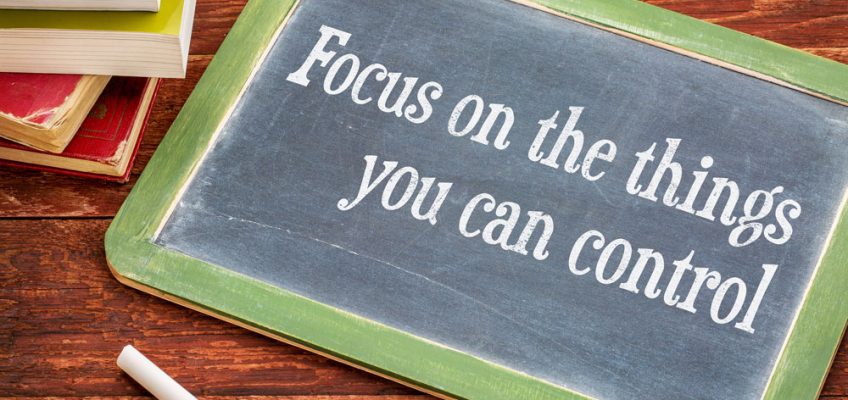A topic that has come up a lot for me lately, and that we recently discussed in one of my meditation groups is letting go of control. I’ve noticed a big change in how I respond when difficult situations arise, a broken leg for instance, and I contribute that to my meditation practice.
We all are faced with those situations, and learning how to cope with those events can help you keep stress levels down. All we can control is our own actions and responses, and once we recognize that and come to terms with it, we can begin to find peace of mind.
The need for control is rooted in fear. The more we know about t he world around us, the safer we feel. The need to control is tied to the fear of what might happen if we let go of control. People suffering from PTSD, for example, may feel like similar trauma may occur if things are not controlled.
When I feel that things are out of control, I focus on those things that I can change, who I choose to spend my time with, for example. Are they negative people, who tend to drag me down with them? Or are they encouraging people who believe in me and support my choices and visions.
Moreover, living in the present moment helps me to let go of control about something that my have already happened (can’t do anything about that), or something that has not yet happened (and may never). When I feel gratitude for the good moments within each day, I can accept my struggles as a path to a new beginning.
Likewise, I am not responsible for the actions of others. While I may care deeply about my loved ones, I recognize that their happiness is dependent on their own actions, not my hopes and wishes for them. That doesn’t mean I can’t send lovingkindness their way, and I often do. Just a few kind intentions during my morning meditation to someone in need is all it takes for me to let go of any control. Those intentions might go something like this:
May you be happy.
May you be in charge of your happiness.
Your happiness is dependent upon your actions, not my wishes for you.
Of course, I also recognize that my idea of happiness may not be the same for others, so part of this practice is letting go of judgment.
Then there are the things we do to try to control how other people respond. Your behaviors may be so ingrained in you, appearing at such a young age, you might not even be aware you are doing it. Criticizing, using guilt, isolating, controlling access to money, and physical abuse are some ways that people try to control others. Passive-aggressive behavior, like invoking the silent treatment, may also be used.
Do you relate to any of this? Just let go of that control. You might find your relationships are improved (including the one with yourself), you have less stress and greater peace, and you are more resilient.
And, as always, be sure to ask for help from a mental health professional if needed. They can give you tools to help in the process.



Leave a Reply